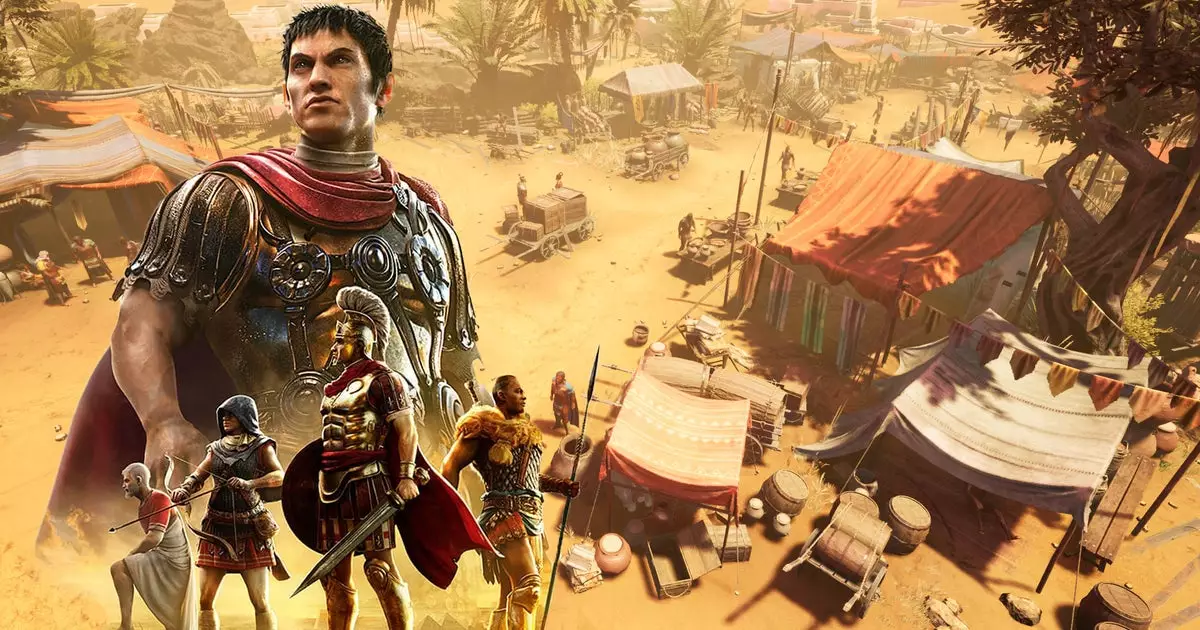In a twist that is both fascinating and emblematic of the volatile state of the gaming industry, Campfire Cabal has emerged from the shadows of supposed extinction, wielding a renewed commitment to game development. After being allegedly shut down in 2023 as part of Embracer Group’s expansive restructuring initiative, which has claimed numerous studios over the past years, the team has come forth to announce that they never truly left the stage. Instead, they were quietly working on the next installment of their historical RPG series, “Expeditions.” This unexpected revival raises questions about resilience, corporate maneuvering, and the human element behind game development.
Corporate Restructuring: A Double-Edged Sword
The backdrop of this resurgence is a stark reminder of the tumultuous landscape that video game studios navigate today. Embracer Group’s aggressive restructuring policies are reflective of a broader trend in the industry where financial decisions overshadow creative aspirations. When a studio is “restructured,” it often translates to job losses and the shuttering of beloved brands—yet Campfire Cabal offers a narrative counter to this grim reality. The notion that they forged ahead with a lean team amid waves of layoffs speaks volumes about the determination and passion that defines the creative forces behind gaming. Their recent announcement that many of their colleagues were let go, combined with their ongoing development, illustrates the tightrope they must walk between corporate directives and the thirst for creative expression.
The Expeditions Legacy: Expectations vs. Reality
Dive into the world of the “Expeditions” series, and one cannot help but feel a thrill for the potential that lies ahead. Each previous entry, from the classical to the more contemporary settings, has carved out its niche in the RPG ecosystem. The next title promises to introduce fans to a different era and location, a tantalizing prospect that ignites curiosity. Will it be an epic set in the expansive Mongolian steppes, or could we see pirates grappling with the complexities of maritime exploration? Hints from the studio remain elusive, but the excitement is palpable.
Yet this sentiment is met with a cautious perspective. The studio is at a crossroads, akin to a phoenix rising, but the question remains: can they recapture the essence that made the original “Expeditions” titles revered? While fans exhibit loyalty to the brand, the change in custodianship from Logic Artists to Campfire Cabal poses challenges. The inherent risk lies in balancing innovation with tradition—a dance that often leaves studios either triumphant or broken.
The Human Element: Stories Beyond the Games
Central to the gaming experience are the stories of the individuals behind the scenes. The situation at Campfire Cabal illustrates how deeply personal the fate of game studios can be, stretching beyond corporate statistics and balance sheets. The struggle to keep a creative vision alive amidst layoffs and restructures emphasizes the emotional toll of these decisions. Those who remain are driven not only by a passion for games but also by an enduring connection to their lost colleagues and the dream of what their unified team once represented.
In a world where layoffs seem suspiciously routine, Campfire Cabal’s perseverance acts as a glimmer of hope. The revival we witness is not merely about game development but symbolizes the undying spirit of creativity in an industry often overshadowed by corporate aims. It is a call to action for both consumers and creators to champion cultural narratives that celebrate perseverance in the face of adversity.
The Broader Implications for the Industry
As Campfire Cabal steps back into the limelight, their journey encapsulates the dual realities of the gaming industry today. The revival can be seen as a beacon of hope amid the wreckage of layoffs, serving as a metaphorical green shoot breaking through the arid landscape left by corporate greed. Their story draws attention to the importance of nurturing creative talent and maintaining a culture that supports innovation.
However, it also bears the cautionary tale of studios perpetually limping back to life, forever altered by the experiences of their past. The narrative of Campfire Cabal both inspires and warns, serving as a poignant reminder that while studios may adjust and survive, the cost often comes at the expense of those they leave behind. As we await the next chapter in the “Expeditions” saga, one can only marvel at the tenacity of those brave enough to continue carving their path in a challenging and unpredictable industry.

